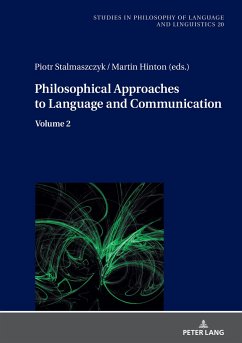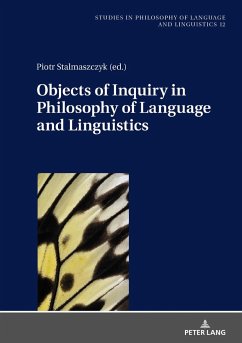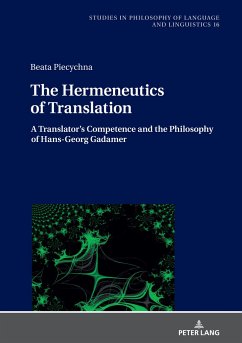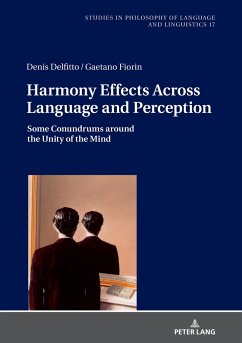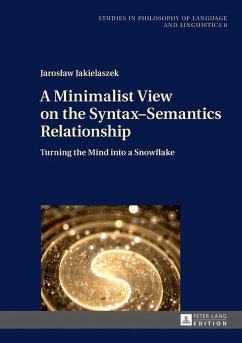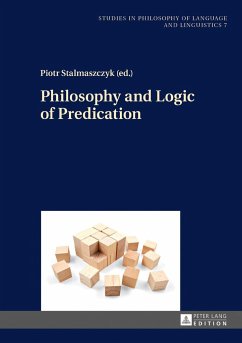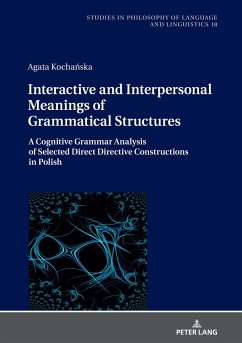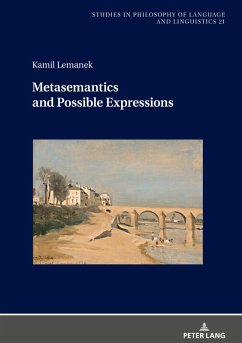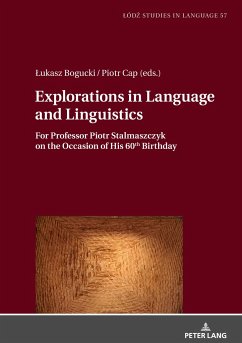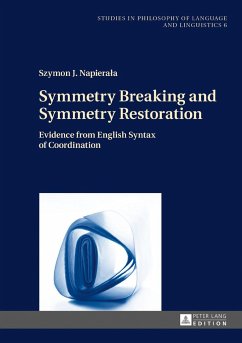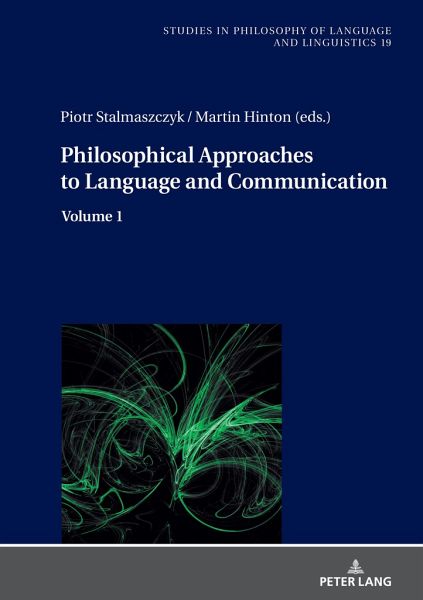
Philosophical Approaches to Language and Communication
Volume 1
Herausgegeben: Stalmaszczyk, Piotr; Hinton, Martin
Versandkostenfrei!
Versandfertig in 6-10 Tagen
54,00 €
inkl. MwSt.

PAYBACK Punkte
0 °P sammeln!
This two-volume collection showcases a wide range of modern approaches to the philosophical study of language. Contributions illustrate how these strands of research are interconnected and show the importance of such a broad outlook. The aim is to throw light upon some of the key questions in language and communication and also to inspire, inform, and integrate a community of researchers in philosophical linguistics.Volume one concentrates on fundamental theoretical topics. This means considering vital questions about what languages are and how they relate to reality, and describing some of th...
This two-volume collection showcases a wide range of modern approaches to the philosophical study of language. Contributions illustrate how these strands of research are interconnected and show the importance of such a broad outlook. The aim is to throw light upon some of the key questions in language and communication and also to inspire, inform, and integrate a community of researchers in philosophical linguistics.
Volume one concentrates on fundamental theoretical topics. This means considering vital questions about what languages are and how they relate to reality, and describing some of the key areas of thought in linguistics and the philosophy of language. Contributors also discuss how philosophy influences related fields such as translation, pragmatics, and argumentation.
Volume one concentrates on fundamental theoretical topics. This means considering vital questions about what languages are and how they relate to reality, and describing some of the key areas of thought in linguistics and the philosophy of language. Contributors also discuss how philosophy influences related fields such as translation, pragmatics, and argumentation.





